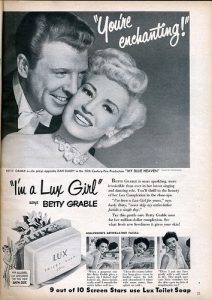
Most of us don’t remember when Detective Joe Friday from television’s Dragnet series in the 1950s said, “All we want are the facts, ma’am.” This phrase, and its truncated version, “Just the facts, ma’am”, are pop culture buzz-phrases, surviving for more than a half-century. Ironically, the early days of television (and radio) were a time when products could be sold based on the believability of the actor in the commercial (“I’m not a doctor, but I play one on TV”) rather than the veracity of the claims being made. Did one brand of soap really clean better than the other? Did one car truly provide a better ride, just because the announcer seemed convincing?
While today’s consumer is still swayed by celebrity spokespeople and clever advertising, consumers, whether retail shoppers or B2B purchasers, want the facts. Does your database provide a better solution for integrating the client information in my 36 offices spread across 13 countries and 3 continents? Prove it! In an age when companies rise and fall on the choices they make when choosing consultants, technology, or manufacturing equipment, glossy brochures and slick sales pitches aren’t enough. That’s where the case study comes in. It can prove to be a valuable asset to help your company show that its product or service truly lives up to its billing.
Case Study Facts

A case study doesn’t need to be complicated, but it does need to be compelling and targeted to your audience. Prospective customers want to see that someone like them—someone facing the same predicament that they’re in—found a solution that worked. Your company may want to develop multiple case studies tailored to different product lines and market segments. Once you provide a scenario that the potential customer can identify with, a case study will explain how your company’s solution met and exceeded the customer’s expectations, and helped them meet their business goals.
Finding a willing subject for the case study may be your biggest challenge. Some companies are reluctant to reveal corporate strategies or to “blow their own horn”. Your business may want to offer them an incentive to use their success story in your internal marketing materials.
It’s also important to be factual. Nothing will shoot down a case study like overinflated claims or outright lies. When you do good work for a client, let the numbers—increased ROI, greater savings, improved efficiency—speak for themselves.
Trade Press Services’ team of writers and editors are experts in helping companies create compelling case studies that will help convince your potential clients that your product has a track record of real-world success. To get started on creating your own case studies, contact Gerri Knilans at [email protected].
